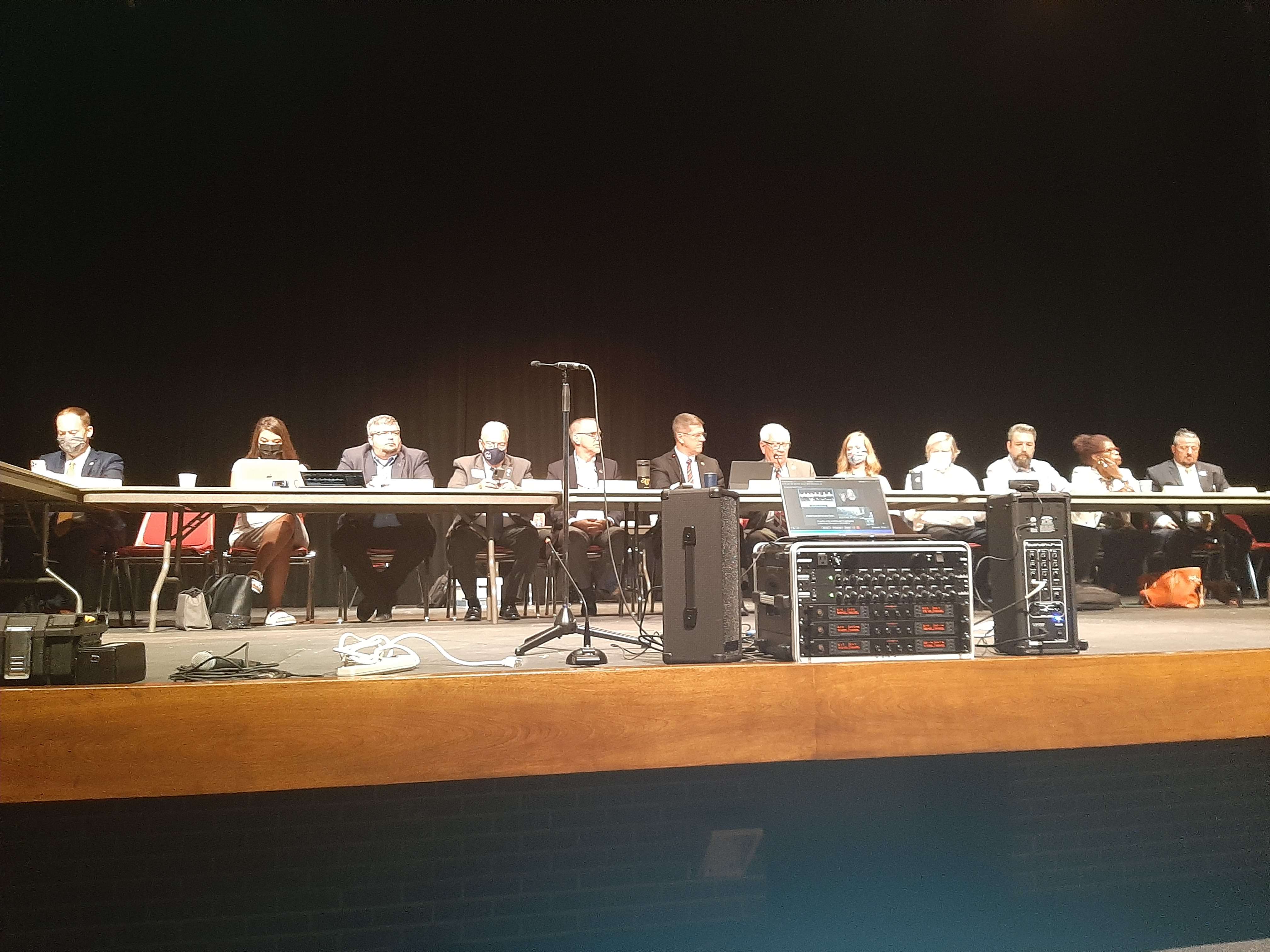
By NICK GOSNELL
Hutch Post
HUTCHINSON, Kan. — The redistricting meeting Wednesday morning at Stringer Fine Arts Center in Hutchinson was one of the better meetings in terms of feedback of the 14-city tour happening this week.
"We've had better turnouts during the day than our evening tour," said Senate Redistricting Committee Chair Republican Rick Wilborn of McPherson. "You would never have guessed that. We were being criticized having these during working hours. The turnouts, what we've seen, has been better."
Nine people came to the meeting to speak along with three who submitted written testimony. The Kansas Legislative Research Department noted that they will get the building blocks of the data they need to do the actual remapping tomorrow and then an easier version to digest of the data will be available at the end of September.
Of those who spoke in Hutchinson, Calvin Wright of the Hutchinson NAACP and Anthony Frischenmeyer of the Prairie Independent Living Resource Center asked for a non-partisan group to make the decision.
Also, former Sedgwick County Election Commissioner Tabitha Lehman, representing the League of Women Voters, called for the decision to be made farther ahead so that election officials can do the job of letting candidates and the public know of any changes.
"I'm pleased with the input we got from Hutch and also Dodge City," said Democratic Rep. Jason Probst of Hutchinson, a member of the House committee. "It seemed that those communities mobilized a lot quicker. As you can hear from the people talking, they don't really know what specifics to offer people, because they had very little advance notice and we don't have the census block data to make these decisions on."
Wilborn noted that it is premature to talk about mapping at this point until they get that data later this week, but they should have a lot more to work with once that comes out. Probst also noted that once that data becomes publicly available there will be lots of tools the public could use to give their representatives potential maps to choose from and then turn into legislative language.





